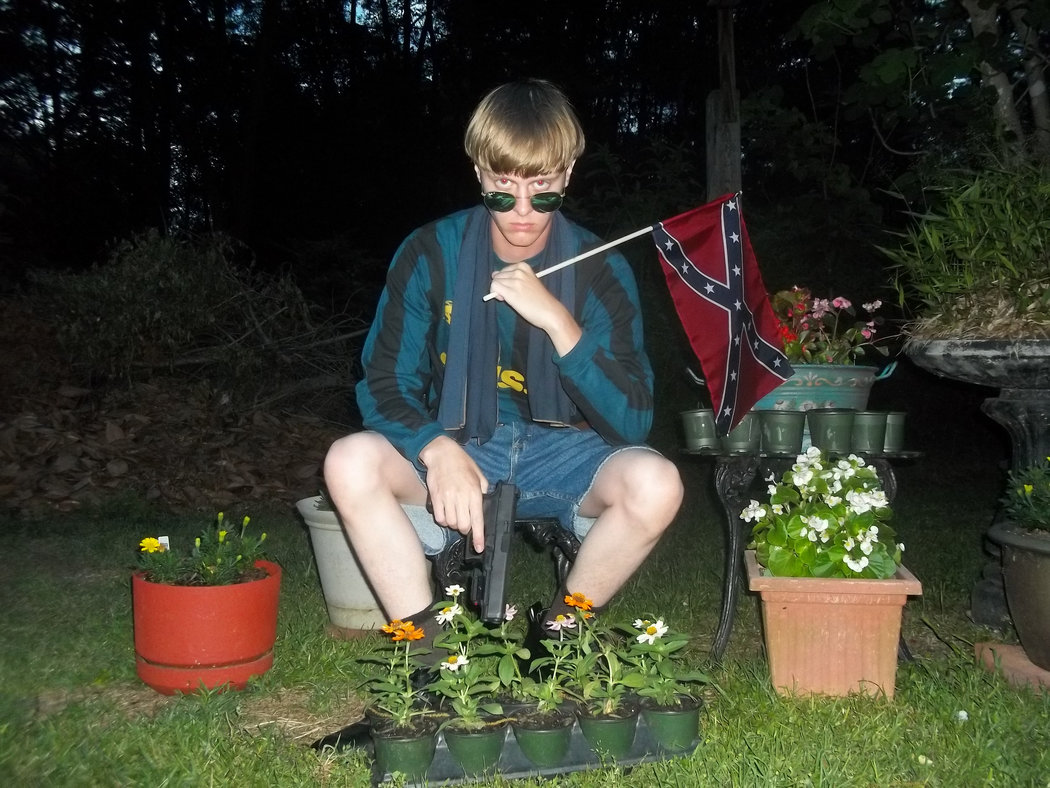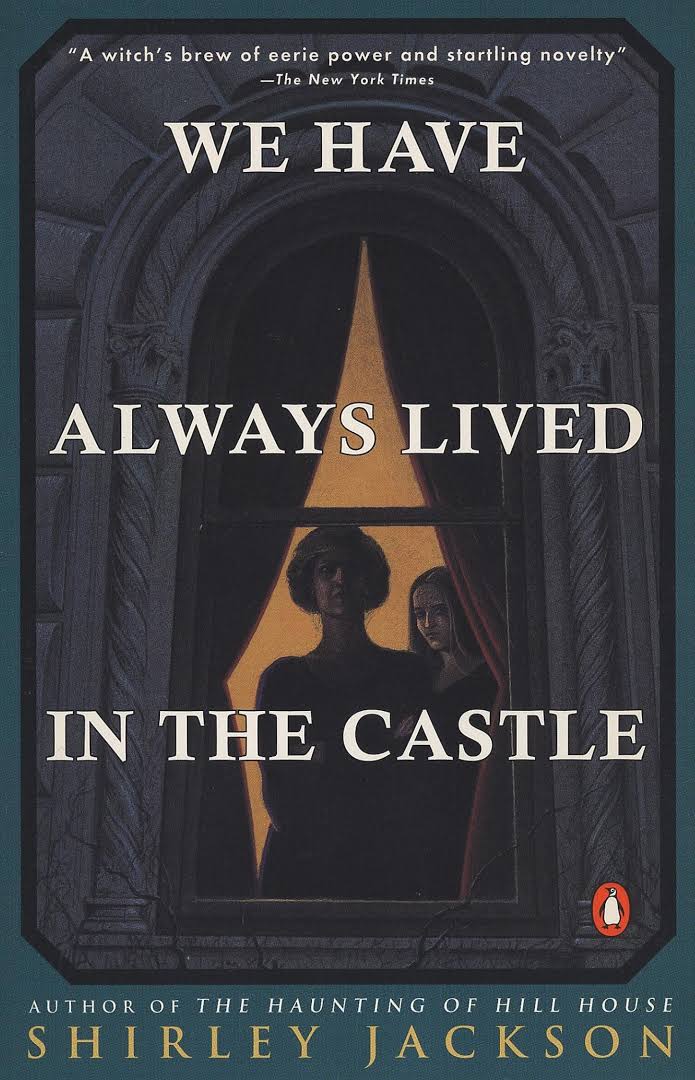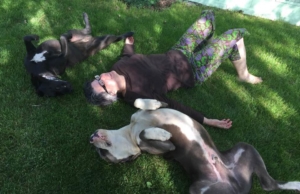Nightmare on Elm Street
By Cassandra Lane
Dylann Storm Roof invades my dream space in the days after he murders nine African Americans at a Bible study in Charleston, South Carolina.
His spirit travels 2,480 miles to reach the interior of my imagination in Los Angeles. Like a bloodhound, he finds my Southern black body hiding out in the desert. As though terrorizing his victims and their families were not enough, as though destroying the sanctity of an historically black house of worship were not enough, he comes to me, the girl who grew up kneeling beside her elders in anointed prayer at St. Paul Baptist Church down the street.
Unshackled and smug, he comes to me.
He comes for me. For us.
The dream begins under the cover of night, full of silence and a pregnant, starless sky. My heart pumps into this blackness. The blackness responds, alive and aware.
The scene switches to a clear afternoon, where sunlight slants between two buildings that stand on a hill. I am walking down a slope to pick my son up from school when I catch a glimpse of a man lurking next to a string of parked cars. He is wearing a soiled white t-shirt and jeans. Something in my spirit tells me that this man is wrong. All wrong.
I rush my son home, which turns out to be the home I grew up in on Elm Street in Louisiana. I am back in the South, after all. In the 1980s, this house was the object of constant teasing.
“It’s Freddy Krueger’s house,” the same gaggle of kids would yell day after day when the school bus pulled up to 202 Elm Street. “Yeah, and there’s his girlfriend: Frederica!”
In my dream, I pause on the porch to finger the empty spot where the third address number should have been: 20_.
But the gunman is on my trail, so I yank open the front door that was always unlocked, get my son and myself inside and turn the locks. Roof shows up seconds later, trying to get in, rifle in hand.
As my son and I look for safe places to hide, I am both terrified and furious. I am tempted to ignore the possibility of death and unleash my rage on Roof’s face, tear at his skin, the mask over hate (what does it look like?).
Roof continues to point his rifle, its snout peering at the front door’s window. He could easily shoot out the glass and work his way in. Instead, his strategy is to drag out the terror with painstaking patience and steadiness—tinkering with the door handle, making threats, stopping completely, and then starting up again. I hold the product of terror in my hands; it is in my son’s small shoulders. His shoulders are bare and brown, full of naked fear.
I carry his tremors in my fingers, dialing first my husband and then the numbers that I have forgotten to constantly reiterate to my son: 9-1-1. In bursts of hysteria, I appeal to the operator: “He wants to kill us.”
“Ma’am,” the operator says calmly, “someone is on the way to help you.”
When the sheriff shows up, I look out the living room’s side window, facing west. The sheriff and Roof stand outside the patrol car, face to face, their arms at their sides, relaxed.
Roof is suddenly in a business suit—navy blue, immaculate. I see his rifle, hiding under the sheriff’s car. I hear the sheriff talking to him in a low, calm tone. I make my way outside to get inside this, their intimate conversation.
With a screech, my husband drives up, jumps out of his car and lunges for the terrorist, but I lunge for him to restrain him. I envision the handcuffs glaring against his brown wrists. Click. Guilty. Assault. Attempted murder.
I hold him down and he holds me down, and in this holding we begin, slowly, to regain our composure.
We are statues of self-restraint.
……………………………………
Formerly a newspaper journalist and high school teacher, Cassandra Lane has published essays, columns and articles in The Times-Picayune, The Source, TheScreamOnline, BET Magazine, The Atlanta Journal Constitution, Bellingham Review and Gambit, and in the anthologies Everything but the Burden, Ms. Aligned and Daddy, Can I Tell You Something. She is an alum of Voices of Our Nation Arts (VONA) and A Room of Her Own Writing Retreat (AROHO). She received an MFA in creative writing from Antioch University Los Angeles. A Louisiana native, she now lives with her family in Los Angeles.



